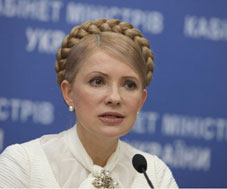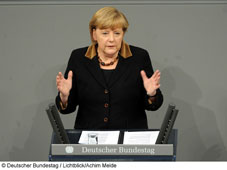From Prague to Vilnius
By Ana Robakidze
Thursday, November 21

Eastern Partnership Summits are held every two years to discuss the implementation and the accomplishments of the Eastern Partnership and to determine the objectives for the next two years. The results of the meeting are reflected in the Joint Declaration, which becomes the starting point for further development of the Eastern Partnership.
On November 28-29, 2013, high officials from the EU and its member states, as well as their counterparts from the Eastern Partnership countries will gather in the Lithuanian capital Vilnius to discuss their achieved progress and set future priorities. The summit is hoped to be historical for Georgia and the country will finally initiate the Association Agreement with the EU. Newly inaugurated President, Giorgi Margvelashvili, who will head the delegation to Vilnius, hopes the country will sign the agreement in 2014.
"Vilnius summit is historical for Georgia. Our country made the European choice much earlier after which this choice was gradually institutionalized," Margvelashvili said. Georgia had its political ups and downs, but overall success of the country has been noted by the EU.
The summit was supposed to be historical for Ukraine as well, but now the success of the country in Vilnius is under question. It is still unclear whether, Ukraine will sing Association Agreement at the summit or not. EU is concerned that Ukrainian government may fail to meet the EU requirements, due to possibly applying selective justice against its political opponents.

Pat Cox, the former President of the European Parliament, and Aleksander Kwasniewski, the former President of Poland, have been charged by the European Parliament with monitoring Ukraine's compliance with the conditions set for signing a political agreement with the EU. Their mission was prolonged for another two weeks, to the date of the Vilnius Summit itself, still giving a hope to Ukraine for signing trade and political agreements in Vilnius.
Georgia and Ukraine, as well as Moldova, have repeatedly confirmed their aspiration to become associate members to the EU. The countries realize that stronger economic ties with the EU and developing democratic institutions according the EU standards will serve as a guarantee for the further prosperity.
However, the Russian Federation always points out that enlargement of the EU or NATO towards its borders does not meet its interests. Russia opposes EU enlargement, as it fears to lose its influence in Eastern Europe and in the Caucasus and it tries its best to intimidate its Eastern neighbors. Russia erected barbed wire fences along the administrative boundary lines of South Ossetia in Georgia, banned the largest Ukrainian confectionery exporter and a variety of Moldovan liquors and threatens to ban exports of some Belarusian and Lithuanian products.

She said it is time for Moscow to cope with the idea that Georgia, Ukraine and Moldova have to decide on their own how close they want to approach the EU. “The states have to make decision on the future direction of their development on their own. A third party has no right to veto this,” Merkel stated. She added that during her meeting with Russian President Vladimir Putin, she tried to assure him that the ties the EU has with Georgia, Ukraine and Moldova are not directed against Moscow’s interests.
Despite the numerous affirmations from EU officials that the Eastern Partnership is an initiative developed as an instrument for cooperation and support to its neighbors, rather than an instrument of rivalry for regional influence with Russia, Moscow is not going to stay calm and watch its neighboring countries become associated partners to the EU.

